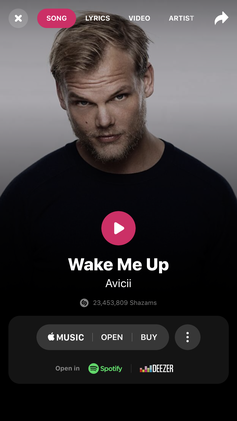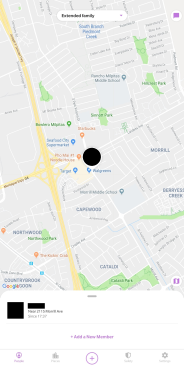
MSN is a web portal and related collection of Internet services and apps provided by Microsoft. The main webpage provides news, weather, sports, finance and other content curated from hundreds of different sources that Microsoft has partnered with. MSN is based in the United States and offers international versions of its portal for dozens of countries around the world; its dedicated app is currently available for Android and iOS systems.
Verizon is an American wireless network operator that previously operated as a separate division of Verizon Communications under the name Verizon Wireless. In a 2019 reorganization, Verizon moved the wireless products and services into the divisions Verizon Consumer and Verizon Business, and stopped using the Verizon Wireless name. Verizon is the largest wireless carrier in the United States, with 146 million subscribers as of December 31, 2024. It currently has the second-largest network in the United States with their LTE network covering 2.68M Sq. Miles of the United States.
Android is a mobile operating system based on a modified version of the Linux kernel and other open-source software, designed primarily for touchscreen-based mobile devices such as smartphones and tablets. Android has historically been developed by a consortium of developers known as the Open Handset Alliance, but its most widely used version is primarily developed by Google. First released in 2008, Android is the world's most widely used operating system; the latest version, released on October 15, 2024, is Android 15.

Xobni was a San Francisco-based company that made software applications and services including products for Microsoft Outlook and mobile devices. It was founded in March 2006 by Adam Smith and Matt Brezina from Adam's dorm room in Cambridge, Massachusetts, as part of the Y Combinator summer founder's program. In late 2006, it relocated to San Francisco to be closer to Silicon Valley. It was acquired by Yahoo! in July 2013 for more than $60 million and shut down one year later.

Shazam is an application that can identify music based on a short sample played using the microphone on the device. It was created by the British company Shazam Entertainment, based in London, and has been owned by Apple since 2018. The software is available for Android, macOS, iOS, Wear OS, watchOS and as a Google Chrome extension.

UC Browser is a web browser developed by mobile internet company UCWeb, a subsidiary of the Alibaba Group. It was the most popular mobile browser in India, Indonesia, and Mali, as well as the second-most popular one in China as of 2017. Its world-wide browser share as of May 2022 is 0.86% overall according to StatCounter.

Zynga Inc. is an American video game developer and publisher known for its social video game services. It was founded in April 2007, with headquarters in San Mateo, California. The company primarily focuses on mobile and social networking platforms. Zynga states its mission as "connecting the world through games".

FarmVille is a series of agriculture-simulation social network games developed and published by Zynga in 2009. It is similar to Happy Farm and Farm Town. Its gameplay involves various aspects of farmland management, such as plowing land, planting, growing, and harvesting crops, harvesting trees and raising livestock. The sequels FarmVille 2 and FarmVille 3 were released in September 2012 and November 2021, respectively.

Google Play, which is also known as the Google Play Store or Play Store, is a digital distribution service operated and developed by Google. It serves as the official app store for certified devices running on the Android operating system and its derivatives, as well as ChromeOS, allowing users to browse and download applications developed with the Android software development kit and published through Google. Google Play has also served as a digital media store, with it offering various media for purchase such as books, movies, musical singles, television programs, and videogames.

Microsoft SwiftKey is a virtual keyboard app originally developed by TouchType for Android and iOS devices. It was first released for Android in July 2010, followed by an iOS release in September 2014 after Apple's implementation of third-party keyboard support.
Pot Farm is a farming simulation social network game developed by Brain Warp Studios and owned by East Side Games. Gameplay involves planting and harvesting different strains of cannabis and manufacturing cannabis-based food items. Many of the plants, quests and achievements are named after elements of cannabis subculture.

Hay Day is a freemium mobile farming game developed and published by Supercell. Hay Day was released for iOS on 21 June 2012 and Android on 20 November 2013. According to a 2013 report, Supercell earned $30 million a month from Hay Day and Clash of Clans. In 2013, Hay Day was the fourth highest game in revenue generated, with a total of over 1.2 billion dollars in gross income by the end of 2013.

Chromecast is a discontinued line of digital media players developed by Google. The devices, designed as small dongles, can play Internet-streamed audio-visual content on a high-definition television or home audio system. The user can control playback with a mobile device or personal computer through mobile and web apps that can use the Google Cast protocol, or by issuing commands via Google Assistant; later models introduced an interactive user interface and remote control. Content can be mirrored to video models from the Google Chrome web browser on a personal computer or from the screen of some Android devices.
Google Cast is a proprietary protocol developed by Google for playing locally stored or Internet-streamed audiovisual content on a compatible consumer device. The protocol is used to initiate and control playback of content on digital media players, high-definition televisions, and home audio systems using a mobile device, personal computer, or smart speaker. The protocol was first launched on July 24, 2013, to support Google's first-generation Chromecast player.

Life360 Inc. is a San Mateo, California–based American information technology company that provides location-based services, including sharing and notifications, to consumers globally. Its main service is called Life360, a family social networking app released in 2008. It is a location-based service designed primarily to enable friends and family members to share their location with each other.

Kakao Corporation is a South Korean internet conglomerate headquartered in Jeju City. It was formed through the merger of Daum Communications and the original Kakao Inc in 2010. The company was renamed Daum Kakao in 2014. In 2015, it was rebranded once more, reverting simply to Kakao.
FunPlus is a video game developer and publisher headquartered in Switzerland, with operations in China, Singapore and Spain. The company has developed the following mobile games: State of Survival, Frost & Flame: King of Avalon, Guns of Glory: Lost Island, Stormshot: Isle of Adventure and Sea of Conquest: Pirate War.












